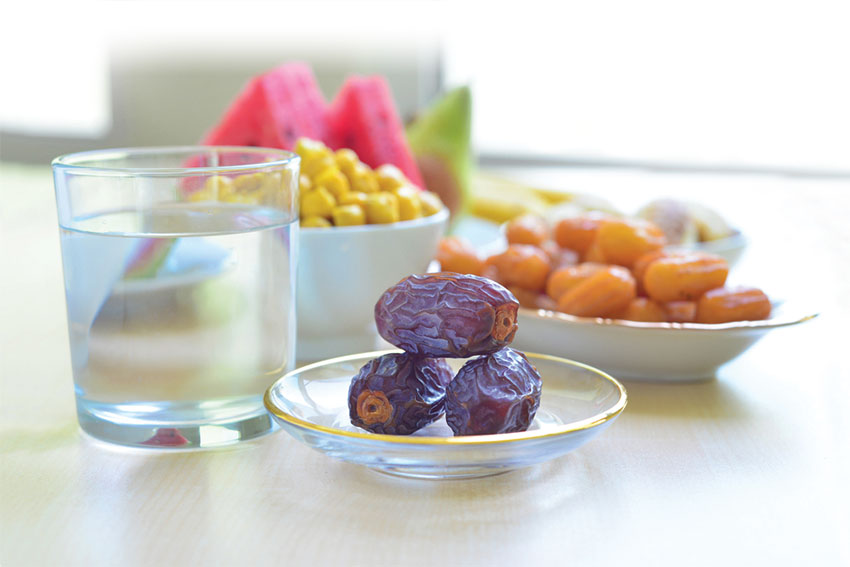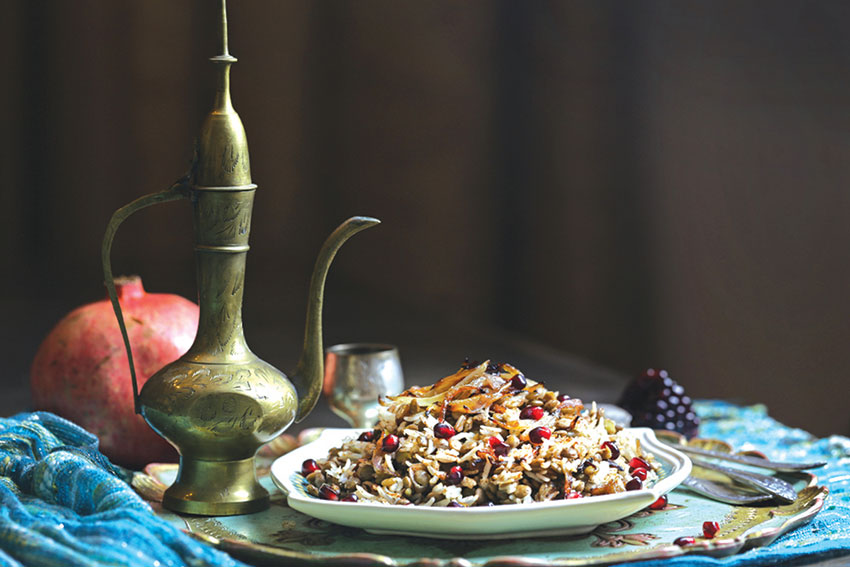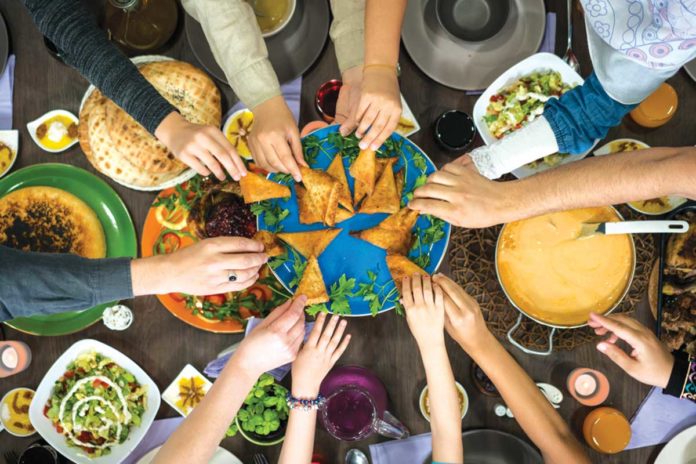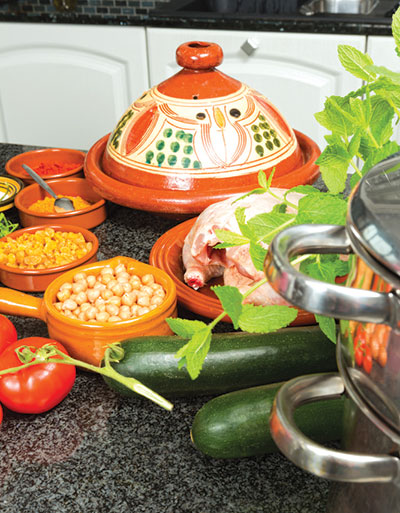Ramadan is the time to practice self-restraint, a time to cleanse the body from impurities and refocus on yourself. This Ramadan, bring about the changes that will last a lifetime for you and your family with some tips from the Food Network* on ways and measures to prepare for and break a fast, so as to remain safe and healthy all through the season.
Before the Fast
As the days lead up to the start of the fast, it is important not to skip meals in order to prepare your body for Ramadan. There is no need to ‘practise’ ahead of the Holy Month; instead, ensure that you maintain your regular diet, leading up to it with a wholesome diet.
Here are three things you could do to stay in your best shape, ahead of the Holy Month:

Maintain Your Diet
Ensure your diet is high in fibre, full of nutrients and fluids, so you are in the best shape while you fast in Ramadan. Fibre helps you feel fuller for longer while providing lots of vitamins, nutrients and minerals. Fruits, veggies and brown rice are great go-to sources. Meals to prepare for Ramadan could include brown rice, baked chicken, steamed veggies like carrots or broccoli, a tossed salad and fresh fruits for dessert.
Keep Hydrated
Drinking water and hydrating yourself before a fast is important. Carry a bottle of water with you everywhere you go. Also, have a pitcher set up during family mealtimes, so it acts as a constant reminder to keep hydrated, which will get you in the habit of following through when you break your fast during Ramadan.
Wean off Caffeine
If you are a coffee addict, it’s a good idea to use this time to slowly cut down your caffeine intake. To help prepare, reduce your intake about a week or two before the start of the season, so as to reduce the symptoms associated with caffeine withdrawal.
During Fast
As Ramadan falls mid-spring this year, daylight will gradually get longer and hotter during the coming days. For those fasting, it is important to shift your usual dining hours to suit Ramadan timings and equip your body with the proper energy it needs.
Be Mindful Of What You Digest
Avoid foods that you know will upset your stomach. Instead, opt for bland foods so as to avoid irritating your stomach. Oatmeal topped with fresh fruit, eggs scrambled or poached and a glass of milk, accompanied by plenty of water, are great foods to ensure you fuel your body for the day ahead.
Light On The Salt
While sodium is great for the body, it’s a well-known fact that too much salt can also affect your hydration levels. Be mindful of your salt intake and try not to add any unnecessary seasoning to your foods when you break your fast.
Take It Easy Exercising
Are you a gym bunny? Fear not, you can still practise physical exercise. However, take it easy during fasting and do not over-exert yourself. Stick to light activity; try taking a long walk with the family to keep your energy up. If you absolutely must exercise, the time it earlier in the morning, so you can refuel ahead of exercising and also finish with a well-balanced meal afterwards, plus lots of water ahead of the day’s fast.
After The Fast
Once Ramadan is finished, be mindful of your health. You would have come off a month of fasting, so eat slowly when you are consuming meals. Also, stick to meals that are low in fibre before jumping into sweet and decadent treats or aromatic, spicy foods.

And, remember, always check with a registered dietitian and a doctor to make sure fasting won’t put your health at risk or affect your medicine intake during the Holy Month.
Ramadan Mubarak!
(* For more tips and healthy food inspiration, head to Food Network, exclusively available on beIN – www.beIN.net/subscribe)


